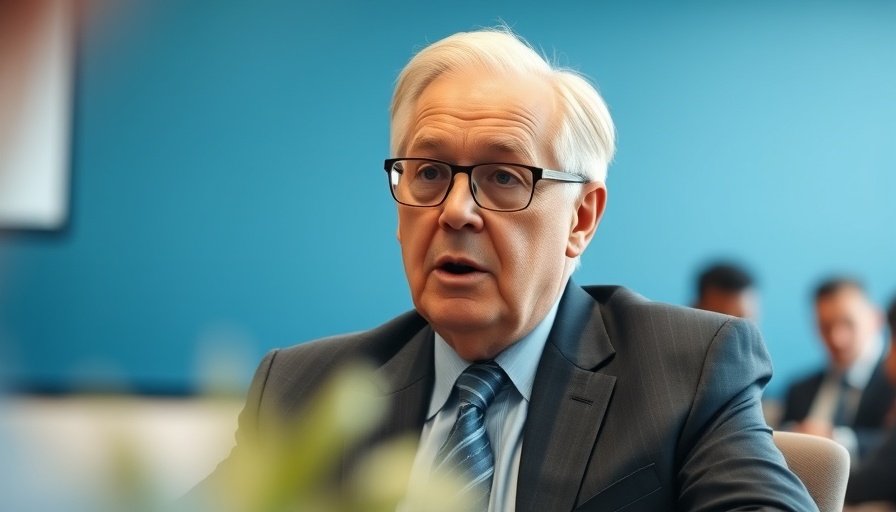
Leadership Shakeup: What McMullen’s Resignation Means for Kroger
The recent resignation of Kroger CEO Rodney McMullen marks a significant shift in leadership for the grocery giant. Following an investigation into a matter described as "inconsistent" with the company's ethics policy, the board announced his departure, emphasizing that the issues at hand were unrelated to the company’s business operations, financial performance, or any Kroger associates.
McMullen, who joined Kroger nearly five decades ago as a part-time stock clerk, held various leadership roles before becoming CEO in 2014. His tenure experienced several pivotal moments, including a failed $25 billion merger with rival grocery chain Albertsons, which was blocked by federal regulators citing competition concerns. This management change comes as Kroger prepares to report its fourth-quarter earnings, raising questions about the company’s strategic direction moving forward.
Historical Context: Kroger’s Recent Struggles and Merger Challenges
The backdrop to this leadership transition is Kroger’s halted acquisition of Albertsons, a deal viewed as a potential game-changer in the grocery space. Initially announced with considerable optimism, the merger faced rigorous scrutiny from regulatory bodies, ultimately prompting its cancellation. Albertsons subsequently sued Kroger, alleging that the company neglected its obligations to secure regulatory approvals, illustrating the complexities of corporate mergers in an increasingly competitive landscape.
Transition Leadership: From McMullen to Ronald Sargent
In light of McMullen's exit, Ronald Sargent has stepped up as interim CEO and chairman of the board. Sargent, with an extensive history at Kroger dating back to 1979, aims to navigate the company through this transitional phase. His comments highlight a commitment to maintaining strategic focus and providing value to customers during a time of uncertainty. The board’s decision to promptly initiate a search for a permanent CEO showcases an eagerness to stabilize and strengthen Kroger's leadership.
Future Implications: Market Reactions and Strategic Directions
The resignation and subsequent leadership change come at a critical time. Kroger's stock demonstrated minor fluctuations in premarket trading, implying a cautious investor sentiment. As the company prepares to unveil its financial results, much attention will be on how this shakeup affects Kroger's operations and market position. Analysts will likely scrutinize the board's strategic initiatives moving forward, especially in light of the stalled merger.
Conclusion: Need for Ethical Governance in Leadership
McMullen’s resignation underscores a pivotal lesson for corporate governance: ethical conduct is paramount for leadership integrity. As companies like Kroger face complex operational landscapes, the emphasis on ethical standards in leadership continues to be crucial. The next CEO will not only need to address ongoing challenges but also restore confidence in Kroger’s leadership and strategic vision.
 Add Row
Add Row  Add
Add 




Write A Comment